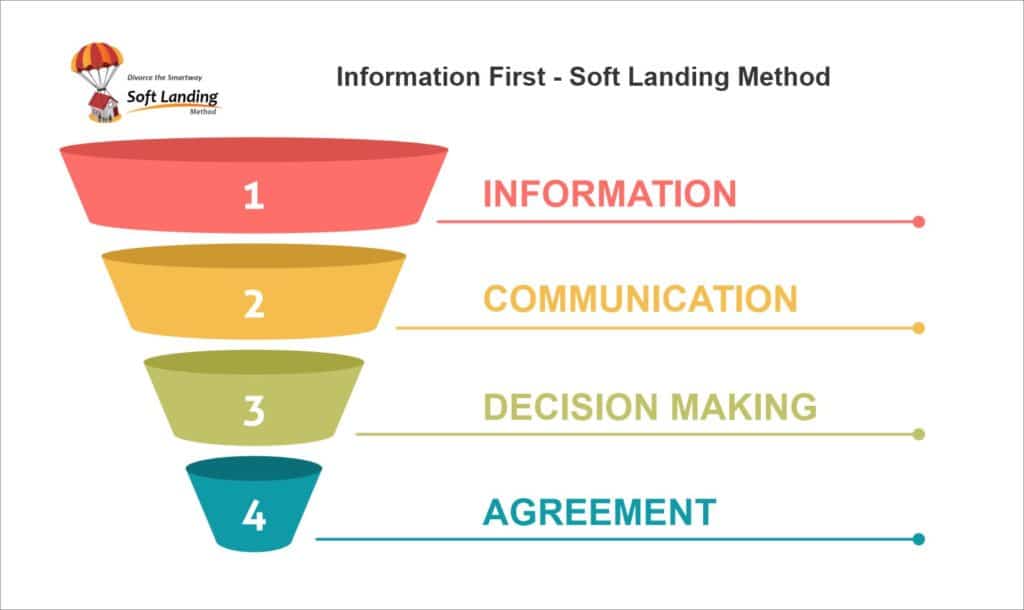Ultimate Harmony: Unlock Divorce Mediation Checklist & Tips

Divorce mediation sessions are attended by both spouses and a certified mediator, with optional professional support as needed.
The core participants in divorce mediation include the separating spouses and a qualified mediator who facilitates the discussion. While these are the primary attendees, additional professionals may join when necessary:
- Family lawyers to provide legal guidance
- Financial advisors to assist with complex asset division
- Accountants for tax-related matters
- Child specialists when custody arrangements are being discussed
The mediator ensures the environment remains neutral and productive, helping both parties work toward mutually beneficial solutions. Each spouse may also consult privately with their respective professionals between sessions.
Divorce mediation involves structured discussions to resolve key separation issues with a neutral facilitator
A typical divorce mediation session provides a neutral, professional environment where both parties work with a trained mediator to reach mutually acceptable agreements. The mediator helps facilitate constructive dialogue without taking sides.
During your session, you can expect to address:
- Property division – Including homes, vehicles, investments, and shared assets
- Child custody arrangements – Including parenting schedules, decision-making responsibilities, and support
- Financial matters – Including spousal support, debt division, and ongoing expenses
- Communication guidelines – Setting ground rules for respectful dialogue and negotiation
The mediator will guide discussions, maintain focus, and help identify potential solutions while ensuring both parties have equal opportunity to express their concerns and priorities.
Divorce mediation begins with choosing a qualified mediator and gathering required documentation.
Starting divorce mediation involves several key steps to ensure a smooth and productive process. Both spouses must voluntarily agree to participate in mediation before proceeding.
- Research and select a certified divorce mediator with experience in family law
- Schedule an initial consultation to discuss your situation and goals
- Gather important documents including:
- Financial statements and tax returns
- Property ownership records
- Child-related documentation
- Insurance policies
- Complete any required intake forms from the mediator
- Prepare a list of concerns and desired outcomes
Most mediators will provide a detailed overview of their process and fees during the initial consultation. This allows both parties to make an informed decision about moving forward with mediation.
Divorce mediation becomes legally binding once approved by the court and signed by both parties
A mediated divorce agreement transforms into a legally enforceable contract through a specific process. While the mediation sessions themselves are not automatically binding, the final agreement becomes legally binding when:
- Both spouses review and sign the mediated settlement agreement
- The agreement is submitted to the court for review
- A judge approves and incorporates it into the final divorce decree
Once finalized, the agreement carries the same legal weight as any court order, making all terms and conditions fully enforceable under Canadian law. Either party can seek legal remedies if the other fails to comply with the agreement’s terms.
Disagreements in mediation can be resolved through facilitated discussion or by exploring alternative legal options
When spouses encounter disagreements during mediation, the certified mediator employs various conflict resolution techniques to help both parties find common ground. The mediator remains neutral while guiding discussions toward mutually acceptable solutions.
If an agreement remains out of reach, several options are available:
- Taking a temporary break from mediation to reflect and regroup
- Consulting with individual legal counsel for advice
- Exploring alternative dispute resolution methods like collaborative law
- Moving forward with traditional court proceedings if necessary
Remember that disagreements during mediation are normal and don’t necessarily mean the process has failed. Many couples successfully resolve their differences with continued dialogue and professional guidance.
Yes, mediation can lead to a legally binding divorce agreement that covers all separation aspects
Divorce mediation is an effective way to reach a comprehensive settlement agreement without going to court. A qualified mediator helps both parties negotiate and document their decisions in a legally binding format.
The mediation process typically addresses:
- Child custody and parenting arrangements, including schedules, decision-making rights, and support payments
- Property division, covering assets, debts, pensions, and the matrimonial home
- Spousal support terms and conditions
- Special considerations like education costs, insurance, and tax implications
Once both parties agree, the mediator drafts a formal agreement that can be reviewed by lawyers and submitted to court for incorporation into your divorce order.
Prepare for divorce mediation by organizing documents, setting clear goals, and maintaining emotional readiness
Successful divorce mediation requires thorough preparation across multiple areas to ensure productive discussions and optimal outcomes. Being well-prepared helps create a more efficient and cost-effective mediation process.
- Gather essential financial documentation:
- Tax returns (past 3 years)
- Recent pay stubs
- Bank and investment statements
- Pension and retirement account details
- Complete list of assets and debts
- Focus on emotional preparation:
- Get adequate rest before sessions
- Practice stress management techniques
- Consider pre-mediation counselling
- Establish clear objectives:
- Write down your priorities
- Identify areas for compromise
- List questions and concerns
Should I get a Divorce Preparation Checklist
External links that may interest you
- Checklist for Divorce Mediation: A comprehensive guide to essential income, bank account documents, and other necessary items for mediation.
- The Essential Checklist for Divorce Mediation: Preparation tips to help minimize costs and streamline the mediation process. Preparing Yourself for Mediation Tips – Checklist: Detailed steps to check mediator experience and resources.
- Ultimate Divorce Mediation Checklist: 35 Key Steps: Ensure successful mediation with this extensive 35-point checklist.
- Divorce Mediation Checklist: Navigate the divorce process smoothly with preparation and negotiation insights.
- Divorce Mediation Checklist: What To Expect. How to Prepare: Essential preparation and questions to ask before mediation.
- Separation/Divorce Mediation Checklist: Key issues discussed in mediation involving separation or divorce.
- 45 Checklist Items for Highly Effective Divorce Mediation: Top 45 checklist items for custody, support, and asset division.
- Divorce Mediation: Checklist & More To Help You Prepare: Checklist and info on how divorce mediation works and preparation tips.
- Divorce Mediation Checklist: 10 Critical Steps to Take: Prepare questions and topics to ensure effective divorce mediation.
- The Best Mediation Divorce Checklist For 2024: Organize asset-liability information and policy details.
- Get Ready for Divorce Mediation – A Complete 30-Item Checklist: Essential marital documents and agreements for mediation.
- How To Begin Mediation – A Checklist: Basic financial information and tax returns for mediation.
- Divorce Mediation Checklist | Everything Needed To Prepare: Key documents and court files required for divorce mediation.
- Ultimate Divorce Mediation Checklist: Organize financial information and list of assets for mediation.
- Divorce Mediation Tips and a Divorce Mediation Checklist: Tips to prepare and willingness to compromise during mediation.
- Divorce Mediation Checklist | ADR LAW: Child custody and visitation considerations in mediation.
- How to Prepare for Mediation: Divorce Mediation Checklist: Financial documents and budget details for mediation.
- Divorce Mediation Checklist (Updated for 2023): Important financial documents and asset valuations for mediation.
Ken Maynard CDFA, Acc.FM
I assist intelligent and successful couples in navigating the Divorce Industrial Complex by crafting rapid, custom separation agreements that pave the way for a smooth transition towards a secure future. This efficient process is achieved in about four meetings, effectively sidestepping the excessive conflicts, confusion, and costs commonly linked to legal proceedings. Clients have the flexibility to collaborate with me either via video conference or in-person through a DTSW associate at any of our six Greater Toronto mediation centers, located in Aurora, Barrie, North York, Vaughan, Mississauga, and Scarborough.


 I’m an Divorce Mediator and Certified Divorce Financial Analyst (CDFA).
I’m an Divorce Mediator and Certified Divorce Financial Analyst (CDFA).














































